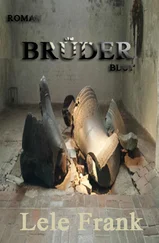Frank Tallis - Vienna Blood
Здесь есть возможность читать онлайн «Frank Tallis - Vienna Blood» весь текст электронной книги совершенно бесплатно (целиком полную версию без сокращений). В некоторых случаях можно слушать аудио, скачать через торрент в формате fb2 и присутствует краткое содержание. Жанр: Исторический детектив, на английском языке. Описание произведения, (предисловие) а так же отзывы посетителей доступны на портале библиотеки ЛибКат.
- Название:Vienna Blood
- Автор:
- Жанр:
- Год:неизвестен
- ISBN:нет данных
- Рейтинг книги:3 / 5. Голосов: 1
-
Избранное:Добавить в избранное
- Отзывы:
-
Ваша оценка:
- 60
- 1
- 2
- 3
- 4
- 5
Vienna Blood: краткое содержание, описание и аннотация
Предлагаем к чтению аннотацию, описание, краткое содержание или предисловие (зависит от того, что написал сам автор книги «Vienna Blood»). Если вы не нашли необходимую информацию о книге — напишите в комментариях, мы постараемся отыскать её.
Vienna Blood — читать онлайн бесплатно полную книгу (весь текст) целиком
Ниже представлен текст книги, разбитый по страницам. Система сохранения места последней прочитанной страницы, позволяет с удобством читать онлайн бесплатно книгу «Vienna Blood», без необходимости каждый раз заново искать на чём Вы остановились. Поставьте закладку, и сможете в любой момент перейти на страницу, на которой закончили чтение.
Интервал:
Закладка:
“Dear God…,” he muttered at his shoes.
The remnants of his childhood faith stirred.
The dusty interior of a provincial church.
Cassocks and incense.
The protective potency of holy water…
Something close to instinct made him want to touch his forehead and cross himself.
A young woman with thick brown hair was lying on a large bed that took up most of the available space in the room. The front of her bloodstained nightdress had gathered in a sopping heap beneath her breasts. As with Madam Borek, her throat had been cut; however, her body had been arranged so that her legs were wide open, exposing the genital area. She had been viciously mutilated. Where her thighs met, a ragged crater had replaced the expectation of a tidy vertical line. An incontinent eruption of gore had flooded the mattress and splashed onto the floor. A flap of skin, covered in matted pubic hair, hung precariously from where it seemed to have stuck on the bedspread.
Rheinhardt felt an involuntary spasm in his gut. A wave of nausea made him feel unsteady. His rational everyday self struggled to comprehend such depravity-such unspeakable savagery.
The scene in the second upstairs bedroom was even more sickening. Another woman, young like the first, had been laid out in a similar fashion. Again, her throat had been cut, but in addition her belly had been sliced open and her intestines scooped out. A bulky segmented length of colon had been looped around her head like a garland. The smell was so revolting that Rheinhardt's head began to swim. He rushed to the window and forced it open. Leaning out, he saw two faces staring up at him.
The senior constable called out, “Unbelievable, isn't it, sir?”
Rheinhardt nodded. There was nothing he could add.
The street was now covered with a thick carpet of snow. In the recess opposite, Saint Joseph and the infant Jesus had acquired an attractive white mantle. The winter weather was cleansing Spittelberg, concealing its poverty beneath a garment of vestal purity. Rheinhardt could not reconcile such beauty with what he had just seen. It seemed impossible that a single world could accommodate such disparities. In the distance, he saw a figure trudging up the incline: it was young Haussmann. Rheinhardt reluctantly resolved to continue with his own ordeal.
In the final bedroom he found the fourth body: a woman lying facedown on the floor. It appeared to Rheinhardt that she had stumbled and had grabbed the bedsheets as she fell. Her right hand, adorned with cheap jewelry, was still closed around a blanket. She was wearing a nightdress, but unlike those of her housemates, its material was relatively clean. There were no bloodstains, splashes, or trails of grume.
Suddenly it occurred to Rheinhardt that the girl might still be alive. He hurried over to the prone body and fell to his knees, anxiously resting a hand on her back. She was cold-very cold-and perfectly still. Refusing to accept that this newly kindled hope should be so precipitately extinguished, Rheinhardt snatched a small hand mirror from a chair by the bedside and wedged it close to the woman's nose and mouth. There was no misting. She was, all too clearly, dead.
Rheinhardt sighed and sat back on his heels. As he did so, he noticed a crusty deposit on the woman's crown. He systematically teased her hair apart, burrowing down toward her scalp. The perfumed fibers became increasingly matted with blood. She had obviously received a fatal blow that had been delivered to the back of the head.
As Rheinhardt rose, he caught sight of an object sticking out from beneath one of the pillows. He flipped the pillow over, exposing a small book bound in worn red leather. He picked it up, opened it, and discovered an inscription on the first page. The spidery scrawl was written in a foreign language, but he recognized the name Ludka. On the next page there were a Star of David and some Hebrew characters. Rheinhardt flicked through the thin, almost transparent pages, and surmised that the item was some kind of prayer book. He placed it in his pocket and sat down on the edge of the bed.
Resting his elbows on his knees, Rheinhardt placed his head in his open hands. He remained in this position for some time, eyes closed, unable to think, and feeling strangely numb, impressions of carnage flaming in the darkness behind his eyelids.
6
Liebermann occupied a window seat in the small coffeehouse near the Anatomical Institute. He dabbed his lips with a starched napkin, and examined the remains of his breakfast: a few croissant flakes and a mauve smear of plum jam. Raising his cup, Liebermann swirled the dark liquid and savored its aroma. It was strong and pungent. When he finally tasted the coffee, he found it to be curiously medicinalbitter but fortifying.
On the street outside, the pedestrians were mostly men, somberly dressed in hats and long winter coats, carrying black leather bags and wearing severe, determined expressions. The exception was an animated young man with astonishingly clear blue eyes, who peered through the window and rapped on the glass. He pointed at himself and then at Liebermann while mouthing the words: “Can I join you?” Liebermann responded by gesturing toward an empty chair.
Stefan Kanner entered the cafe and sat down without removing his coat. He beckoned a waiter and ordered a brauner.
“I've just had my fencing lesson with Signore Barbasetti,” said Liebermann. “The second this week. As a result, I am now in dire need of sustenance.”
“How did it go?”
“Yet again I was roundly thrashed.”
“Should I commiserate?”
“No, not at all. I learned a great deal.” Liebermann took another sip of coffee and examined his friend more closely. “What are you doing here so early?”
“I musn't be late for Professor Pallenberg's ward round.”
Liebermann glanced at his wristwatch. “Well, there's no danger of that.”
“There was hardly any traffic…”
“Why are you so anxious to be on time?”
“Pallenberg wants me to take notes. He's examining a new patient-a rare example of Cotard's syndrome.”
“Le delire de negation.”
“You know of it?”
“I read Cotard's Maladies Cerebrales et Mentales when I was a student.”
“Sometimes, Maxim, you can be very irritating.” The waiter arrived with Kanner's coffee and a small glass of water on a silver tray. “The patient is a fifty-six-year-old shop owner,” Kanner continued, adopting the clipped style of a case presentation. “A few years ago he began to complain of feeling like death. His wife arranged for him to stay in a sanitorium-Bellevue, I think-which made him feel better, but after returning to Vienna, he became very depressed. He has since been under the care of a general physician. Recently he caused his wife and children considerable alarm when he claimed that he not only felt like death but actually was dead. A few days ago he requested burial.”
“I believe that when the Cotard delusion reaches its apotheosis, the patient not only denies his own existence but that of the entire universe.”
“It will be interesting to see how Professor Pallenberg deals with such a challenging patient. I wonder what treatment the old boy will favor?”
“Morphine and chloral hydrate. Like he always does. I fear that Professor Pallenberg has yet to learn that a sleeping patient is not necessarily a cured patient.”
Kanner laughed, throwing back his head to reveal the pink-ribbed roof of his mouth.
Liebermann peered over the rim of his coffee cup at the bustling street outside. Among the many pedestrians, he observed a young woman. She was wearing a simple gray pillbox hat, which rested on a cushion of fiery red hair. Her coat was olive green, with black velvet trimmings. She was walking quite fast, and passed out of view almost immediately.
Читать дальшеИнтервал:
Закладка:
Похожие книги на «Vienna Blood»
Представляем Вашему вниманию похожие книги на «Vienna Blood» списком для выбора. Мы отобрали схожую по названию и смыслу литературу в надежде предоставить читателям больше вариантов отыскать новые, интересные, ещё непрочитанные произведения.
Обсуждение, отзывы о книге «Vienna Blood» и просто собственные мнения читателей. Оставьте ваши комментарии, напишите, что Вы думаете о произведении, его смысле или главных героях. Укажите что конкретно понравилось, а что нет, и почему Вы так считаете.












